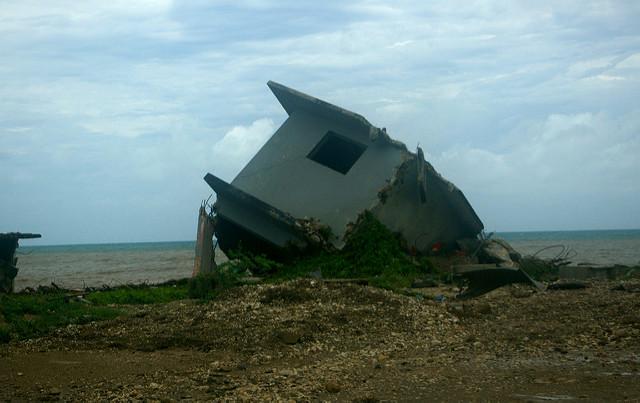
The beat
Complaints unanswered
Due to a lack of funding, NSW’s Law Enforcement Conduct Commission (LECC) has been unable to pursue multiple allegations of misconduct. The LECC’s chief commissioner revealed in a parliamentary submission that a lack of funds and staff caused the organisation to ignore 50 active investigations. It also failed to investigate another 51 allegations of misconduct. The LECC’s failings come to light just as a review has suggested stripping judicial experience from the NSW Crime Commission, replacing its commissioner with a CEO who wouldn’t require legal qualifications.
Bombings in Texas
Parcel bombs have killed two people in Austin. On 2 March, a 39-year-old was killed after opening a parcel bomb. On Monday, 12 March, two separate bombs killed a 17-year-old and injured two others. Two of the victims were African-Americans, prompting police to speculate that the attacks may be racially motivated. The attacks have drawn comparisons with the Unabomber, who killed three people with parcel bombs between 1978 and 1995.
INTERPOL initiative
INTERPOL has launched an initiative to boost African security and cooperation at a time when cross-border crime between African states is increasing. The I-ONE program will give modern equipment to the central police bureaus of 31 African nations so they can better use INTERPOL’s resources. The program also aims to strengthen border security, giving frontline police at border crossings and ports access to INTERPOL databases.
CT scan
More JNIM attacks
Following last week’s reporting of attacks by al-Qaeda affiliated Jamaat Nusrat al-Islam wal Muslimeen (JNIM) in Burkino Faso, this week JNIM claimed responsibility for an attack in Mopti, a populous region in Mali. Mali remains the deadliest location for UN peacekeepers in the world, with more than 100 killed since the UN stabilisation mission began in 2013. However, JNIM isn’t the only group operating in Mopti. Several local armed militia groups were responsible for half the violence last year.
Philippines terror list
The Philippines government has created a list of 600 terror suspects. If approved by the courts, the individuals will be labelled terrorists and receive increased government scrutiny. The list includes UN Special Rapporteur Victoria Tauli-Corpuz, who has campaigned for indigenous rights in the Philippines. She’s accused of terrorism and membership in the New People’s Army (NPA). Human Rights Watch says that those listed are at risk of government retaliation, especially those labelled NPA supporters. Meanwhile, the Philippines military identified Abu Dar as the new emir of Islamic State in Southeast Asia. Dar was one of the few sub-leaders to survive the battle for Marawi last year.
Islamic State attacks Aden
IS claimed responsibility for a car bomb in Yemen that killed three and wounded 35. The bomb exploded outside a supply post belonging to UAE-backed ‘Security Belt’ forces. UAE special forces arrived in Yemen in February to ramp up counter-terrorism efforts. Nevertheless, IS has carried out several attacks this year. The US Defense Department has said that IS forces in Yemen had doubled in size in 2017.
Checkpoint
Blockade lifted in Iraqi Kurdistan
Iraqi Prime Minister Haider al-Abadi announced that international flights to Iraqi Kurdistan will resume after a six-month blockade. The Kurdish Regional Government (KRG) will cede control of Erbil and Sulaimaniyah’s airports to Baghdad. Whether the region will maintain its independent visa system hasn’t been decided. The KRG’s land and space borders remain heavily contested. An Iraqi military spokesman denied that an agreement had been reached on Iraqi Kurdistan’s border.
Iran–Pakistan cross-border cooperation
Iranian Foreign Minister Mohammad Javad Zarif stressed the importance of border security during his visit to Islamabad on Monday. The meeting, marking 70 years of diplomatic relations between Iran and Pakistan, focussed on securing the border to disrupt drug traffickers and terrorist operations. The long-delayed Iran–Pakistan peace pipeline, an ambitious energy project to export gas from Iran to Pakistan, was also discussed. The project has been delayed amid security concerns in the Baluchistan region.
Border Force boss on the fence
Australian Border Force Commissioner Roman Quaedvlieg faces possible dismissal after two separate misconduct investigations. Quaedvlieg has earned more than $500,000 since being placed on leave in May last year. He’s accused of breaching the Australia Public Service code of conduct over an alleged relationship with a former staffer. The secretary of the newly-created Department of Home Affairs, Michael Pezzullo, dismissed criticism that Home Affairs executives were ‘constructing an extra-judicial apparatus of power without proper parliamentary oversight’.
First responder
Climate change mitigation in Jamaica
The Jamaican government is addressing climate-related risks through a new US$30 million climate resilience project. The project will be managed by the Jamaica Social Investment Fund and will focus on making infrastructure more resilient and on developing a national risk information platform. The investment will support UNDP work to strengthen Jamaica’s agricultural resilience to frequent natural disasters, namely hurricanes and floods.
Building resilience in Vietnam
The UN is working with Vietnam to develop its climate resilience by building free houses in coastal towns. The UN-built houses’ simple design will improve the structures’ overall strength to make them storm-proof. The UN aims to build 300 houses by the end of year, each costing US$1,700. According to the Climate Risk Index 2018, Vietnam is the eighth most-affected country by extreme weather events.
Ethiopia’s humanitarian disaster resilience plan
Ethiopia has outlined five key humanitarian issues facing the country in its Humanitarian Disaster Resilience Plan: acute food insecurity, malnutrition and water shortages, conflict-driven displacement, spread of disease, and personal security. These risks are exacerbated by Ethiopia’s severe drought, which is entering its fourth consecutive year. Ethiopia’s southern and south-eastern regions have been the most affected. Ethiopia has requested $1.6 billion in aid to assist with its humanitarian emergency.